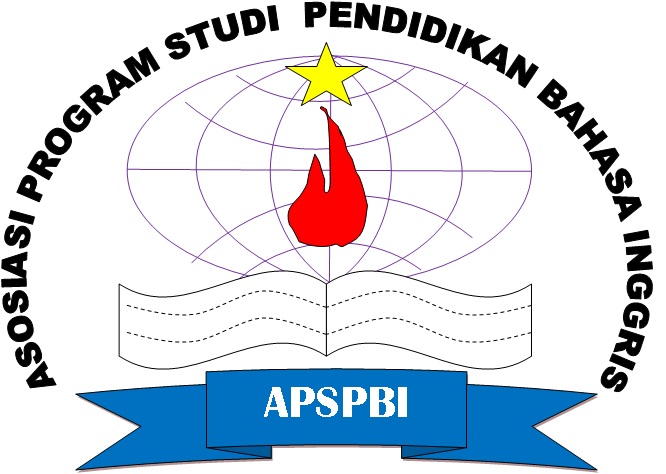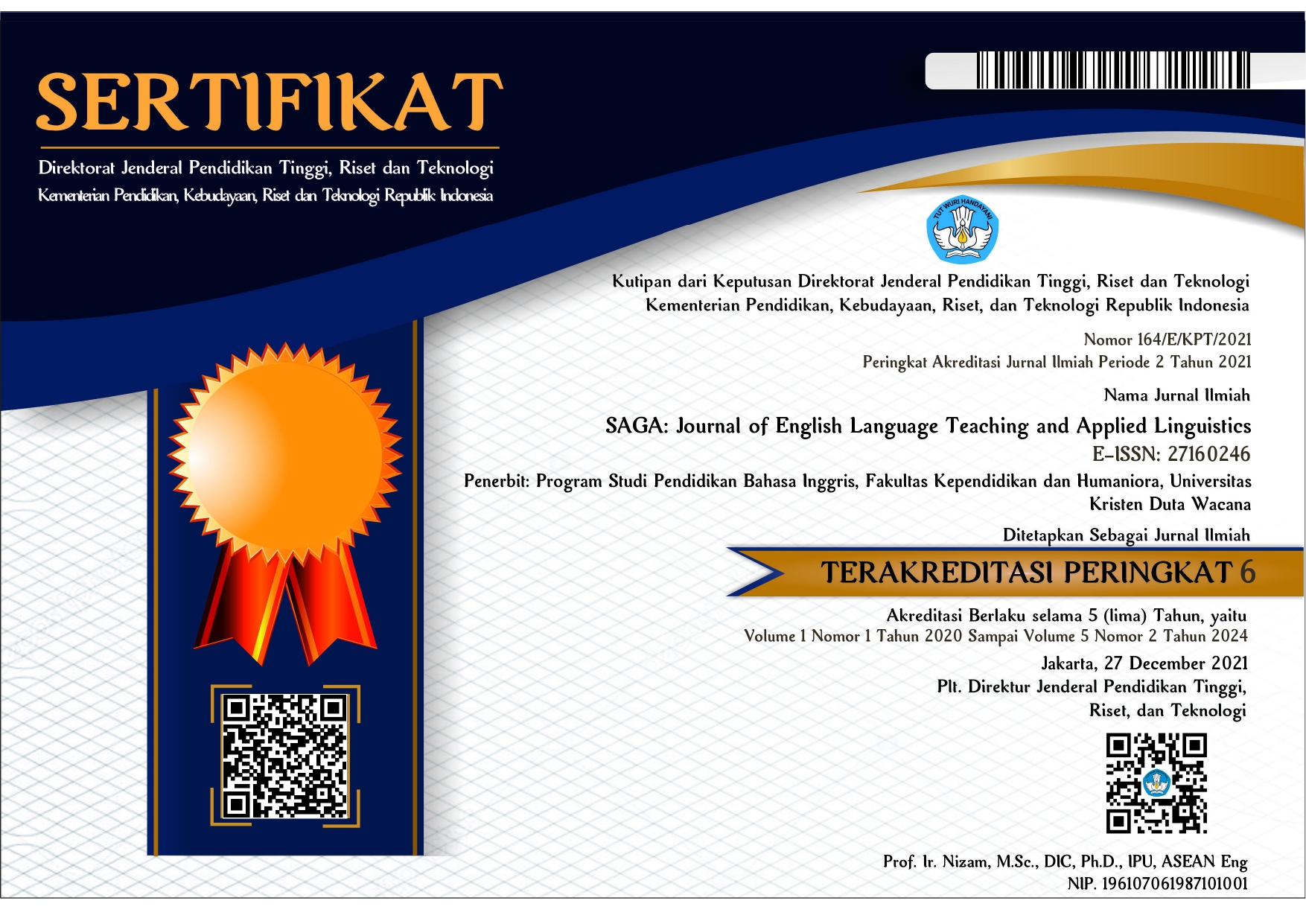The Correlation between University Students' Personality and Mastery of Writing Skills
DOI:
https://doi.org/10.21460/saga.2024.51.168Keywords:
Students personality, writing skillsAbstract
This study seeks to examine whether university students' personalities and writing skills are correlated. This study used correlational research as its methodology. The researchers examined two variables, university students' personality and writing skills, to establish a statistical correlation between them. This study's respondent sample consists of forty students majoring in English education. This study was conducted in the English Education Department of Universitas Tidar's Faculty of Teacher Training and Education. Using an International Personality Item Pool (IPIP) questionnaire makes it simple to ascertain the personality scores of each respondent, regardless of whether they are high-extroversion or low-extroversion learners. In addition, the participants' writing skills were shown by their mid-semester essay writing course test scores. Quantitative data exists for both extroversion and writing scores. Therefore, Pearson product-moment and SPSS were used to analyze the data. Based on the results of this study, the researchers conclude that there is only a weak correlation between university students' personalities and their mastery of writing skills. Because the findings of this study contrast with those of other studies, it is hoped that further research will be conducted to provide a more nuanced and comprehensive understanding.
References
Adamopoulos, J. (1982). The perception of interpersonal behavior: Dimensionality and importance of the social environment. Environment and Behavior, 14(1), 29-44.
Akhtar, H. & Azwar, S. (2018). Development and Validation of a Short Scale for Measuring Big Five Personality Trait: The IPIP-BFM-25 Indonesia. Journal of Innovation in Psychology, Education and Didactics. 22(2), 167-174
Arikunto, S. (2007). Manajemen Penelitian. PT Rineka Cipta.
Arkkelin, D. (2014). "Using SPSS to Understand Research and Data Analysis". Psychology Curricular Materials. 1.
Ary, D., Jacobs, L., Razavieh, A., & Sorensen, C. (2010). Introduction to Research in Education (8th ed.). Cengage Learning.
Baron, R. A., & Byrne, D. (1987). Social psychology: Understanding human interaction. Allyn & Bacon.
Bilal, H, A., Tariq, A. R., Din., Latif, H., & Anjum, M. N. (2013). Investigating the Problems Faced by the Teachers in Developing English Writing Skills. Asian Journal of Social Science and Humanities, 2(3), 238–244.
Brown, H. D. (2000). Principles of language learning and teaching (4th ed.). New York: Longman.
Cook, V. (2002). Portraits of the L2 user. Clevedon: Multilingual Matters Ltd. https://doi.org/10.21832/9781853595851
Creswell, J. W. (2012). Educational Research: Planning, Conducting and Evaluating Quantitative and Qualitative Research (4th Ed.). Pearson Education Inc.
Dancey, C. P., Reidy, J. (2007). Statistics without Maths for Psychology. Pearson Education.
Dewaele, J. M. (2005). Investigating the psychological and emotional dimensions in instructed language learning: Obstacles and possibilities. Modern Language Journal, 89(3), 367–380. https://doi.org/10.1111/j.1540-4781.2005.00311.x
Dhanya, M., & Alamelu, C. (2019). Factors influencing the acquisition of writing skills. International Journal of Innovative Technology and Exploring Engineering, 8(7C2), 259–263.
Eysenck, H. J., Eysenck, M. W., Fulker, D. W., Gray, J., Levey, A. B., Martin, I., Powell, G. E., Stelmack, R. M., & Wilson, G. (1981). A model for personality. Berlin: Springer Verlag. https://doi.org/10.1007/978-3-642-67783-0
Eysenck, J. H., & Eysenck, M. W. (1985). Personality and individual differences: A natural science approach. New York: Plenum Press. https://doi.org/10.1007/978-1-4613-2413-3
Faisal, R. A. (2019). Influence of Personality and Learning Styles in English Language Achievement. Open Journal of Social Sciences, 07(08), 304–324. https://doi.org/10.4236/jss.2019.78022
Fareed, M., Ashraf, A., &Bilal, M. (2016). ESL Learners’ Writing Skills: Problems, Factors and Suggestions. Journal of Education & Social Sciences, 4(2), 83–94. https://doi.org/10.20547/jess0421604201
Marwa, W. S., & Thamrin, N. R. (2016). Extrovert Personality and Its Impact on Students’ Argumentative Essay Writing Skill. English Review: Journal of English Education, 4(2), 267. https://doi.org/10.25134/erjee.v4i2.340
Sugiyono. (2011). Metode penelitian kuantitatif, kualitatif dan R&D. Afabeta.
Zainuddin, Z. (2016). The Impact of Personality: Extrovert vs. Introvert on the Ability in Syntax in Essay Writing. Studies in English Language and Education, 3(2), 158-169.
Zhang, Y. (2008). The Role of Personality in Second Language Acquisition. Asian Social Science, 4(5), 58-59. https://doi.org/10.5539/ass.v4n5p58
















